Ausklang
Music for Piano with Orchestra
-
Ships in 3 to 4 weeks
Details
Description
SKU: BR.PB-5168
Music for Piano with Orchestra. Composed by Helmut Lachenmann. Orchestra; Softbound. Partitur-Bibliothek (Score Library).World premiere: Cologne (Musik der Zeit), April 18, 1986
Solo concerto; Music post-1945; New music (post-2000). Study Score. Composed 1984/85. 192 pages. Duration 50'. Breitkopf and Haertel #PB 5168. Published by Breitkopf and Haertel (BR.PB-5168).ISBN 9790004209097. 9 x 14 inches.
The wish to defeat gravity, to outsmart it, or at least to simulate situations of conquered gravity, can find its pendant in the many attempts to delay the fading away of sound which has been put into vibration by an impulse - or instance the sound of a piano. The history of piano music, and not just since Romanticism, is almost completely the history of such techniques. Though these play an important role in my compositions, I am more interested in how the possibilities are changing. Pianistic models derived from fingering techniques, organised as mechanical processes initially only meant to move the strings, the fading away of which should be prevented by several violent interventions; severe rhythmicised processes of construction and deconstruction; filtering, sudden integration of totally different categories of perception, etc: such smuggled models created their own dynamics.Also essential is the possibility of transfering the initial pianistic type (attack impulse, figuration, form, metamorphosis, but also reversibility and firmness) to the orchestra, to separate characteristic orchestral groups as if to create a superpiano. The solo instrument thus becomes only part of the whole. As signposts in this material landscape, there are raw basic forms such as the unchanged echo, the pure sound, but also more complex forms such as false echo, the filtered cantilene and finally also martellato fields covering their own echo or being swallowed by it.Simultaneously, there is a harmonic image: harmonics orientated towards simple and aggregate forms, unison sound (the orchestral version of the string choirs of the piano), but also a second, the simple tonally unresolved interval. All these are coordinated in view of the fading processes which have to be hindered on a small and a large scale, expressively emptied and loaded anew. The music thus goes through situations which - continuing, contrasting or changing in quality originate from one another. It appears to move away from the initial idea, becoming more and more independent, only to reach that same idea again, recognizing themselves as a giant cantibile, and subject themselves to it.(Helmut Lachenmann, program notes for the Huddersfield Festival 2000)CDs:Massimiliano Damerini, Kolner Rundfunk-Sinfonieorchester, cond. Peter EotvosCD col legno WWE 31862Ueli Wiget (piano), Ensemble Modern Orchestra, cond. Markus StenzEMCD-003Pierre-Laurent Aimard (piano), Symphonieorchester des Bayerischen Rundfunks, cond. Jonathan Nott CD NEOS 11424Bibliography:Febel, Reinhard: Das Bist Du. Zur Musik von Helmut Lachenmann, in: Reinhard Febel, Alles standig in Bewegung. Texte zur Musik 1976-2003, hrsg. von Rainer Nonnenmann (= Quellentexte zur Musik des 20./21. Jahrhunderts 11.1), Saarbrucken: Pfau 2004, pp. 168-180.Herzfeld, Isabel: Tradition ist etwas Dynamisches, das immer weitergehen muss. Ein Gesprach mit Helmut Lachenmann uber ,,Ausklang - Musik fur Klavier mit Orchester, in: Piano News (2014), Heft 6, pp. 60-64.Huber, Sonja: Das Klavierkonzert heute? Bewahrung der Tradition oder Experimentiertfeld fur Neues? in: Die Tonkunst, 6 (2012), Heft 3, pp. 368-373.dies.: Klavierkonzerte an der Schwelle zum 21. Jahrhundert. Ausgewahlte Werke von M. Feldman, H. Lachenmann, G. Ligeti, W. Lutoslawski, G. Kuhr und M. Jarrell, Diss. Wien 2010.Ausklang und Abgesang. Helmut Lachenmann im Gesprach mit Max Nyffeler, in: Lucerne Festival, Sommer 2005 Neuland, Konzertprogramm 6, pp. 34-42.Zink, Michael: Analytischer Versuch uber Helmut Lachenmanns Ausklang, in: MusikTexte, Heft 96 (Februar 2003), pp. 27-41.
World premiere: Cologne (Musik der Zeit), April 18, 1986.
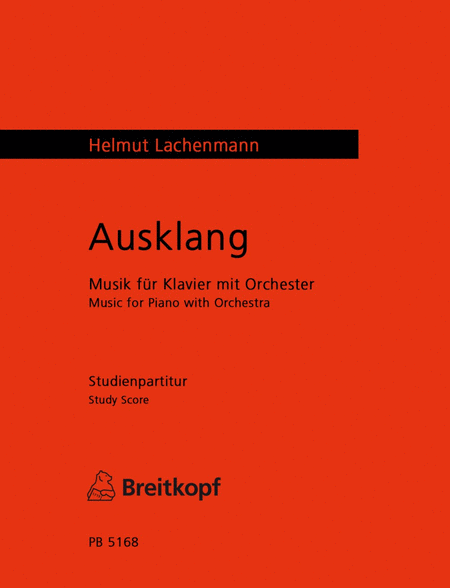
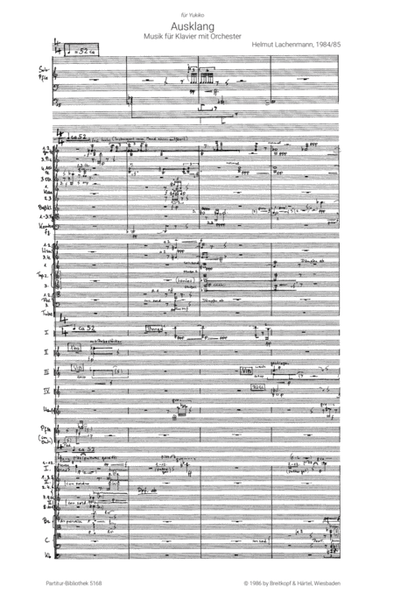
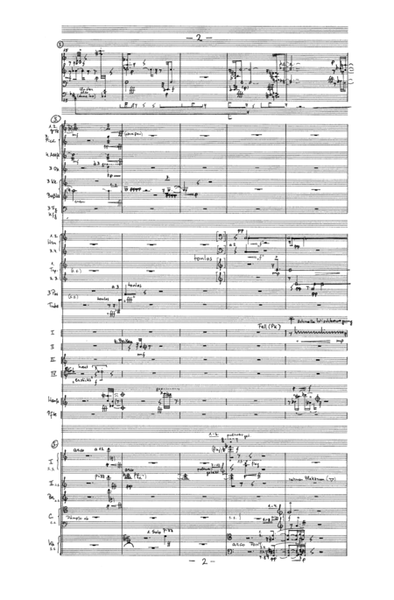
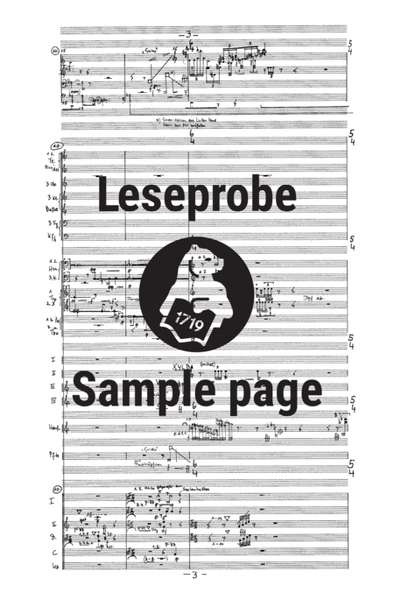
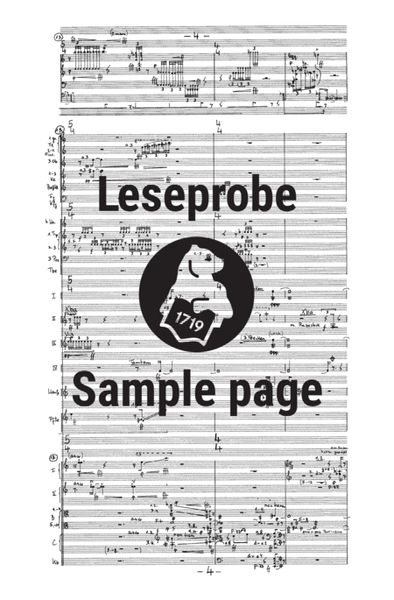
 Share
Share